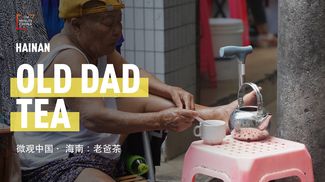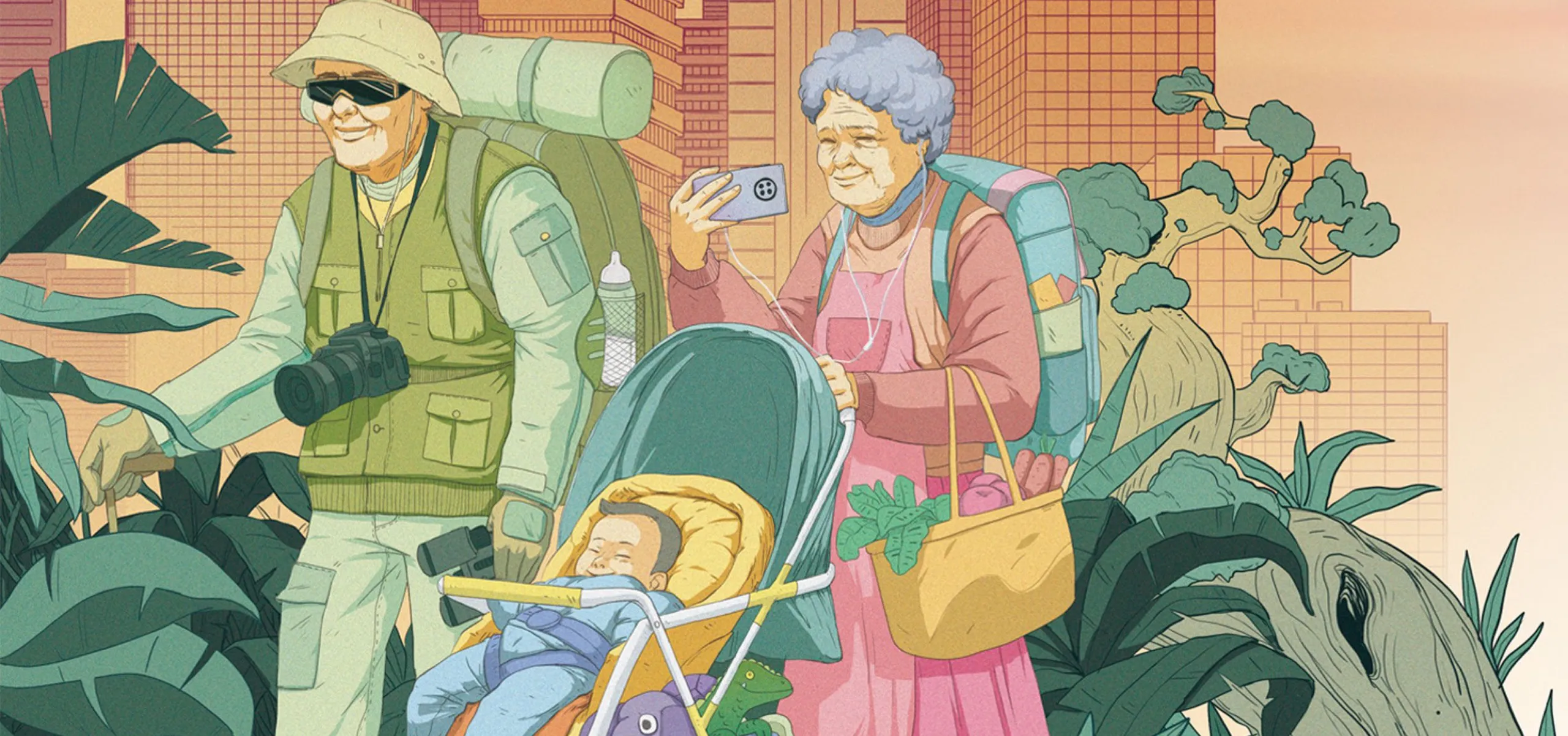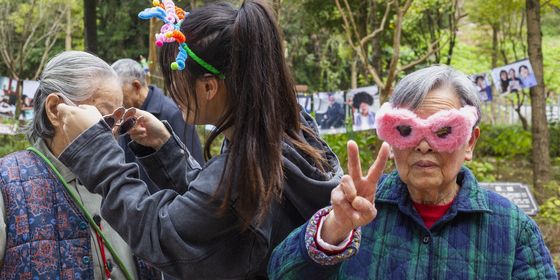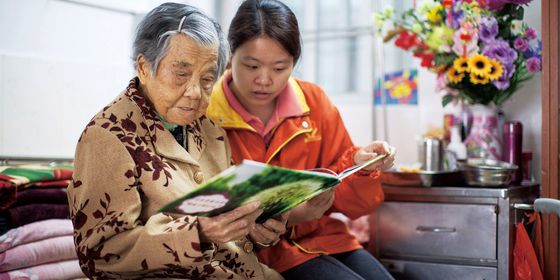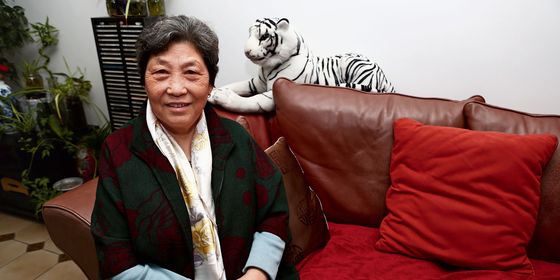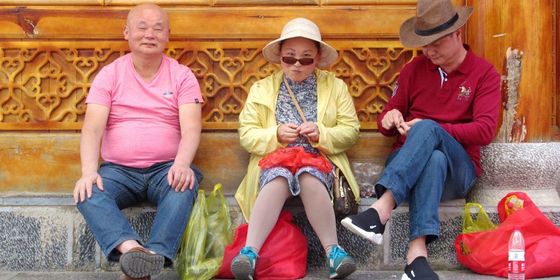As elders become their grandchildren’s primary caretakers, they face moving to the city in their old age
At 3:20 p.m., Zhang Meihua can usually be found waiting at the school gate to pick up her 6-year-old granddaughter, clutching a basket full of fresh produce from the market. On the way home, she collects her other granddaughter, aged 3, from a relative’s house, then keeps an eye on both girls while cooking and doing housework until her husband, son, and daughter-in-law return home from work.
“Home” for Zhang these days is a 10-square-meter room in Beijing’s Haidian district crammed with two bunk beds, a small wooden table, and a gas stove. Until six years ago, though, Zhang and her husband lived in a spacious two-story farmhouse in Bozhou, Anhui province. After their first granddaughter was born, the couple moved to the capital to ease the burden of childrearing on their son and daughter-in-law. The family finances were tight, even with both parents working full-time, so Zhang’s husband, then in his late 50s, took up a job as a street cleaner to help out.
Traditional Chinese culture has long touted the concept of “four generations under one roof” as the ideal family structure, and 61-year-old Zhang claims migrating in their twilight years to be with their adult children is something “all” older people in her village do. “We don’t have jobs, just a few plots of farmland, so we might as well help our kids as much as we can,” she says.
No Respite in Retirement for China's Migrating Elderly is a story from our issue, “Something Old Something New.” To read the entire issue, become a subscriber and receive the full magazine. Alternatively, you can purchase the digital version from the App Store.



